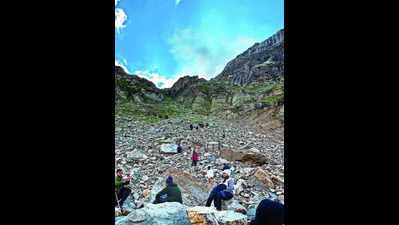
Pune: Monsoon brings joy to our lives, transforming the landscape into a lush green paradise, but it also brings along a host of travel challenges, like flooded roads and landslides, and travellers need to well prepared to withstand these obstacles.
From landslides in North India to floods in several places, travellers sometime lose a lot of time and money in dealing with the challenges that the season throws.“We had planned a monsoon trek in Manali last year in July-August. Owing to heavy rain, parts of road from Chandigarh to Manali were blocked following landslides. It took 7-8 hours for the weather to clear up and by the time we reached Manali, it was too late. We missed the trek starting date and had to incur a lot of last-minute expenses like hotel bookings etc,” recalled Anurag Chandra, a resident of Bangalore.
While road blockages can be a challenge for travellers, delayed and cancelled flights can also be a big issue for those who have planned their trips. “We love travelling during the monsoon and have learnt to opt for flexi-tickets. Flexi-tickets offer a reasonable refund in case of last-minute emergencies and can also allow people to change flights if the weather is bad,” Kunal Shah, a resident of Vimannagar, said.
Anirudh Sharma, founder, Trekkers of India, which conducts many treks in Himachal and in Uttarakhand region, said, “We constantly inform people joining our treks about the weather. We urge them to arrive 1-2 days earlier than the scheduled trek departure. This serves as a buffer in case they get caught up somewhere and is also an opportunity for them to acclimatise to the weather. For some reason if a person misses the trek, we accommodate him/her in the next group.” Tour operators also inform tourists to book flexi-tickets so that in case of bad weather, it is possible to change dates or get refunds.
Driving in the monsoon can have its own challenges. Prakash Dubey, who has been driving tourists to hilly regions in Maharashtra for 15 years, said, “Roads are usually slippery and one must maintain a safe distance from other vehicles. I also keep an emergency kit in my car with flashlights, emergency numbers and first aid supplies that can be of use in case of an accident.”. Having a reserve of food and water can also be handy in case of road blockages that take several hours to clear up.

:max_bytes(150000):strip_icc()/TAL-lead-image-buren-columns-3DAYPARIS1123-5cfed2aeba554c9da7709b5d775e88b6.jpg)






